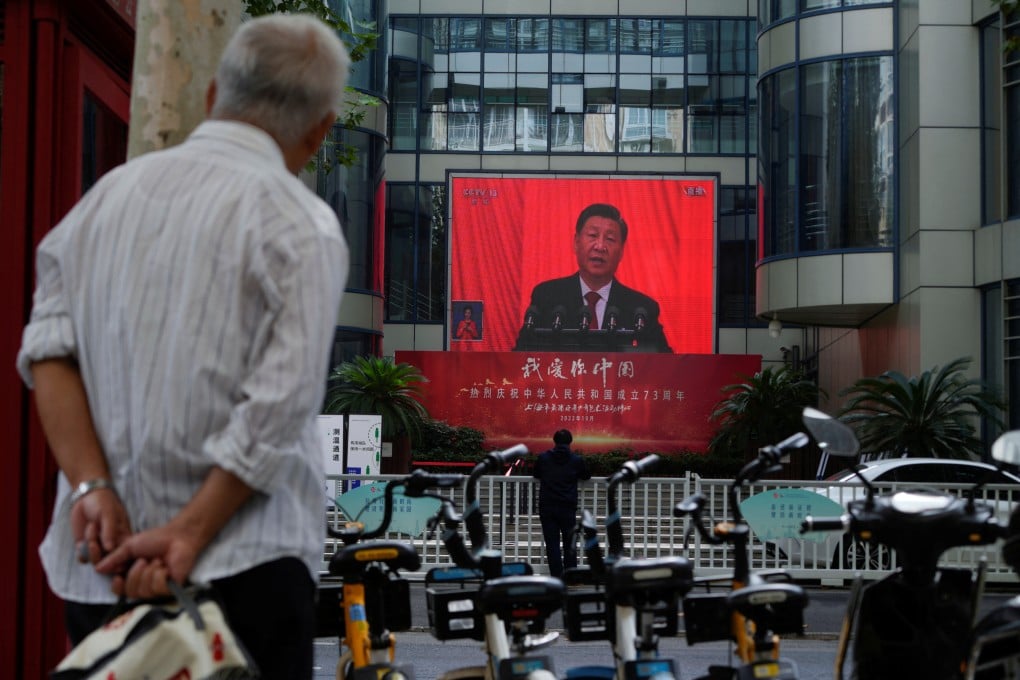Editorial | Despite challenges, Xi makes clear that his ambitions for China can and will be met
- President not only praises the achievements of the past 10 years at Communist Party’s national congress but more importantly outlines his blueprint for turning the country into a leading global power by mid-century

The leader’s speech to the Chinese Communist Party’s five-yearly national congress is an overarching view of the achievements of the past and a vision of the future. Yesterday the vision consisted of goals that must be met if China is to fulfil its destiny of national rejuvenation. What set the address to the opening session of the 20th party congress by President Xi Jinping apart is that he is on the cusp of beginning a third term in office. He was therefore giving an account of 10 years at the helm of party and country and setting out the next stage of China’s ascent to the summit of world power.
The past five years was defined by the challenges of political unrest and anti-government demonstrations in Hong Kong, the Covid-19 pandemic, heightened tension with the United States and over Taiwan. Later in the speech, when Xi affirmed a preference for peaceful cross-strait reunification over the use of force, the Taiwan issue evoked the greatest display of unity and resolve from delegates in the form of the longest and loudest applause.
While the past decade may have been challenging for the Communist Party domestically and politically it will be remembered, nonetheless, for achievements such as the declaration that the central government had succeeded in its goal of eradicating extreme poverty, development and consolidation of the Belt and Road Initiative for infrastructure partnership, and the centenary of the Communist Party. But Xi made it clear that the next five years under his leadership is mission critical to the vision of China becoming the leading power in the world by mid-century in two stages: first by completing modernisation by 2035 and then by becoming a pacesetter and goal-setter of global development by 2050.
The most difficult part lies just ahead. That is how to begin – or how to generate enough momentum from the start – to propel a realistic tilt at such an ambitious and enshrined objective, and then ensure that the policy direction is correct.
Sustainable quality growth
In this regard, quantitative headline growth alone cannot be the only measure of China’s development. It needs sustainable quality growth, to be measured ultimately by self-reliance in many aspects of security. This goes beyond the narrow concept of military security to reasonable expectations of safety from disease, deprivation and disaster. In terms of Xi’s goal of common prosperity in which growth benefits everyone, Xi is essentially talking about growing the middle class. He also talked about helping the poor, with the emphasis on job creation. When he talked about quality growth that also includes carbon neutrality and air quality, with pollution in a sense being comparable with poverty.
